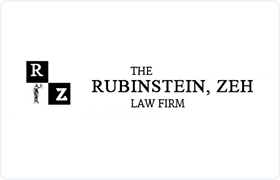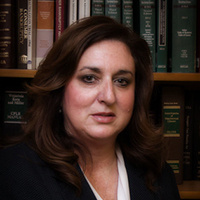 Smithtown Estate Lawyers, New York
Smithtown Estate Lawyers, New York
Sponsored Law Firm
-
 x
x

Click For More Info:
-
The Law Firm of Rubinstein, Zeh and Associates
445 Broadhollow Rd. Suite CL-10 Melville, NY 11747» view mapEstate Law Full Service Law Firm
The Law Firm of Rubinstein, Zeh and Associates has built its practice primarily on word-of-mouth among our clients and the trusted referrals from our colleagues.
800-960-1529
Sponsored Lawyers
1-10 of 28 matches
Divorce & Family Law, Litigation, Accident & Injury, Real Estate, Estate
Bridget Tartaglia is a graduate of the State University of New York at Stony Brook. Ms. Tartaglia received her Juris Doctor with honors from Touro College Jacob D. Fuchsberg Law Center in 1995. While attending Touro, Ms. Tartaglia was one of the founding members and the Research Editor of the Environmental Law Journal. Ms. Tartaglia was instrumental in publishing the first edition to the Law Journal in 1995. She also received numerous academic honors during her tenure at Touro, including a Community Service Award and the American Jurisprudence Aware of Excellence in Creditor’s Rights. She was active and integral member of the Columbian Lawyers Association where she served as President. She also served as intern for the Honorable Howard Levitt of the Supreme Court, State of New York, County of Nassau. Ms. Tartaglia was also recipient of two academic scholarships from the Columbian Lawyer’s Association while attending Touro. While attending her last year at Touro, Ms. Tartaglia was a law clerk at Jakubowski, Robertson & Goldsmith. After graduating from Touro, Ms. Tartaglia became an associate attorney with said firm and later became a member of said firm. Ms. Tartaglia was admitted to Practice in the State of New York, Second Department in January, 1996. She was admitted to Practice in the State of Connecticut in November, 1995. She was admitted to Practice in the United States District Court, Eastern District of New York in March, 1996. She was most recently admitted to Practice in the Supreme Court of the United States America in March, 2005. Ms. Tartaglia has engaged in the general practice of law with an emphasis in Matrimonial and Family litigation. Since 1996, she has had substantial experience in litigating all issues relative to Matrimonial and Family Law matters. Ms. Tartaglia has litigated almost every possible issue that may arise between divorcing and non married parties. In addition to Matrimonial and Family Law litigation, Ms. Tartaglia also substantial experience in performing residential real property closings, representing both purchasers and sellers as well as experience in general civil litigation. Ms. Tartaglia is an active member of the Suffolk County Bar Association and the Suffolk County Women’s Bar Association. She is also a member of the Matrimonial Bar Association of Suffolk County, the Columbian Lawyers Association of Suffolk County and the New York State Bar Association (including the Family Law Section of said Bar Association). Ms. Tartaglia has received multiple awards relative to her practice in the area of Matrimonial and Family Law. These include her having an AV Preeminent rating in both Legal Ability and Ethical Standards with Martindale-Hubbell since 2013; a 2019 Lawyer of Distinction for her work in Family and Divorce Law; Martindale-Hubbell Top Rated Lawyer in Family Law; 2016 10 Best Females Attorneys in Family Law; Avvo Top Rated Lawyer, 2017 and a 2015 Client Distinction Award. Ms. Tartaglia also has been honored for the past two years by the Suffolk County Bar Association for her donation of her time to pro bono divorce matters in Suffolk County. In addition to receiving multiple awards relative to her work in the Matrimonial and Family Law field, Ms. Tartaglia also was honored by the WVI Dolphin Foundation and received a 2019 Spirit of Youth Sports Awards for her continued commitment and time volunteered to Youth Sports. Ms. Tartaglia is has been a youth basketball coach for Infant Jesus Church CYO program in Port Jefferson, NY for the past 9 years. She has spent countless hours each season coaching up to two different teams. Ms. Tartaglia was a division I college athlete where she played basketball at Brooklyn College. In addition, Ms. Tartaglia has worked on the fundraising committee for Mount Sinai Youth Soccer for the past 5 years where has volunteers time to raise money for a local soccer organization. Since 2013, Mrs. Tartaglia has been a Catechist for St Louis De Monfort Church in Sound Beach, NY where she has and continues to volunteer her time each week to teach two different religion classes each year. She is also a team leader for the Mount Sinai Neighborhood Watch for which she acts a liason for members of her community. In addition to work in her community, she also is a volunteer with the Suffolk County Bar Association pro bono foundation. She is a longtime resident of Mount Sinai where she resides with her husband and two sons.
(more)Estate Planning
Mr. Falcone has extensive knowledge in estate planning for families of all ages and all income levels, Medicaid Asset Protection for seniors, Special Needs planning for disabled individuals, and Guardianships for incapacitated people. He is well-versed in the preparation and submission of Medicaid applications for both nursing home care and community-based home care all over New York State. He also prepares and executes simple and complex wills and trusts for his clients. Mr. Falcone is a New York State Certified Guardian, Court Evaluator and Attorney for a Guardian. Mr. Falcone is also accredited to practice before the Department of Veterans Affairs. Mr. Falcone is a member of the New York State Bar Association’s Committee on Veterans; Tax Committee; Elder Law and Trusts & Estates. Additionally he is a member of the Suffolk County Bar Association’s Elder Law and Trusts and Estates Committees; National and New York Care Planning Councils and he serves on the Executive Board of the Suffolk County Estate Planning Council. Mr. Falcone graduated from Iona College with Distinction with a Bachelor of Arts degree in Journalism and received his Juris Doctor from the City University of New York School of Law. While in law school he was a legal intern of the coveted Main Street Legal Services Elder Law Clinic, at CUNY Law School which consistently ranks in the top four of all law school elder law clinics nation-wide. Mr. Falcone was named “One To Watch” by Long Island Business News, 2011 and he was named a “Rising Star” by Super Lawyers. He was named as “10 Best Attorneys in New York” by the American Institute of Legal Counsel. He is Peer Rated in Martindale Hubbell and he has also appeared as a guest on 103.9 LI News Radio as an expert to discuss elder law issues. He has conducted a number of lectures on Medicaid Law for the Elder Law Clinic students of the City University of New York School of Law. Prior to becoming an attorney, Mr. Falcone served in the United States Navy for 13 years where he was awarded the Navy Commendation Medal and Combat Action Ribbon (with Gold Star) while serving in Operation Desert Storm. You can rest assured knowing that Mr. Falcone will handle your matter with expertise and compassion.
(more)


 Christine Rubinstein Melville, NY
Christine Rubinstein Melville, NY AboutThe Law Firm of Rubinstein, Zeh and Associates
AboutThe Law Firm of Rubinstein, Zeh and Associates Practice AreasExpertise
Practice AreasExpertise


